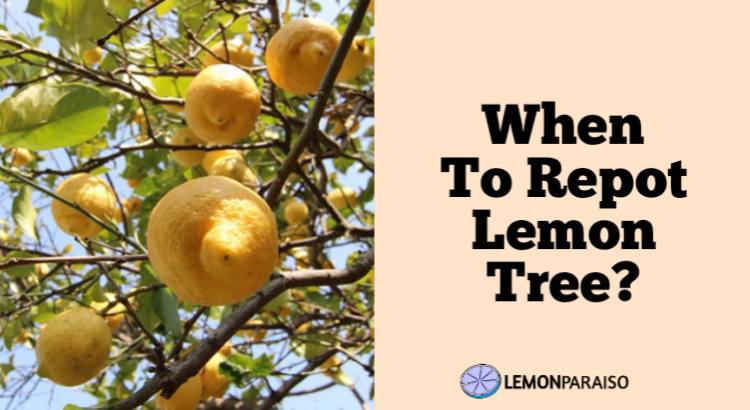Potted Lemon Tree Winter Care
Potted lemon trees are a popular choice for indoor or outdoor gardening, as they can be grown in a container and produce sweet, juicy fruit. Lemon trees do have specific requirements for winter care in order to survive and thrive.
Know the steps that should be taken to prepare potted lemon trees for winter and provide tips for maintaining the health and vitality of the tree during the colder months.
Potted Lemon Tree Winter Care
Taking care of a potted lemon tree in the winter months is important for ensuring its health and productivity. During the winter, your lemon tree will need to be kept in a warm, sunny location. If you live in a colder climate, you may need to bring your lemon tree indoors. Once indoors, it should be placed near a south-facing window to ensure it receives adequate sunlight.
Watering your lemon tree is also important during the winter months. The soil should be kept moist, but not soggy. You may need to water your lemon tree more often during the winter months as the soil tends to dry out faster in colder temperatures. Additionally, you should fertilize your lemon tree every month or two to ensure it receives the nutrients it needs to grow and produce fruit.
It is also important to watch out for pests and diseases during the winter months. If you notice any signs of pests or diseases, you should treat your lemon tree right away. This can be done with a variety of insecticides or fungicides.
By following these tips, your lemon tree should remain healthy and productive throughout the winter months.
Can You Leave A Potted Lemon Tree Outside In Winter?
No, you should not leave a potted lemon tree outside in winter. Lemon trees prefer warm climates and will not be able to survive cold temperatures. If temperatures drop below 30°F/-1°C, the tree will suffer from frost damage and the leaves will become discolored and die.
Instead, bring the lemon tree indoors during the winter and place it in a bright, sunny spot near a window. Make sure to keep the soil moist but not soggy, and mist the leaves occasionally to keep them from drying out.
Lemon trees can also benefit from being fertilized every two weeks with a balanced fertilizer. With proper care, your lemon tree will be able to survive the winter and produce delicious lemons in the spring.
Can Lemon Trees Survive Winter Outside?
Lemon trees are generally not able to survive winter outside without protection. Lemon trees are tropical and subtropical plants, meaning they need temperatures that remain above freezing and ideally in the 50-85 degree Fahrenheit range.
If temperatures drop below freezing, the tree will suffer damage, and if temperatures remain below freezing for too long, the tree can die. As such, if you live in an area with cold winters, it is best to keep your lemon tree indoors or in a greenhouse during the winter months.
There are some hardier varieties of lemon tree that may be able to survive cold winter weather, such as the Meyer lemon tree. Meyer lemons are a cross between a lemon and an orange and are more cold-tolerant than other varieties.
If you live in a milder climate, you may be able to successfully grow a Meyer lemon tree outdoors. However, if temperatures drop significantly below freezing, you should still consider bringing your tree inside or providing some type of protection.
Should I Cover My Lemon Tree In Winter?
Whether you should cover your lemon tree in the winter depends on where you live and the climate. If you live in an area with cold winters, it is a good idea to cover your lemon tree in order to protect it from cold temperatures.
A light material such as burlap or frost cloth can be used to cover the tree and provide some insulation from the cold. Be sure to cover the entire tree, including the trunk and branches, to ensure that it is properly protected. If temperatures are expected to drop below freezing, you may want to consider bringing the lemon tree indoors until the weather warms up.
In milder climates, a lemon tree may not need to be covered in the winter. If temperatures drop below freezing, it is still a good idea to cover the tree to provide some additional insulation.
If you do not have a frost cloth or burlap available, you can use a bed sheet or other lightweight material to cover the tree. Keep in mind that the covering should be removed during the day when temperatures are above freezing, to allow the tree to receive some sunlight and fresh air.
How To Wrap A Lemon Tree For Winter?
Wrapping a lemon tree for winter is an important step in ensuring its health and vigor in the spring. Here are some steps to help you wrap your lemon tree for winter:
First, prune the tree and remove any damaged or dead branches. This will help the tree focus its energy on healthy growth.
Next, wrap the trunk and branches of the tree with burlap or a breathable fabric. This will help protect the tree from extreme temperatures and wind. Make sure the fabric is loose enough to allow air circulation, but tight enough to stay in place.
Finally, cover the burlap or fabric with a layer of plastic. This will help protect the tree from moisture, snow, and ice. Make sure to secure the plastic with rope or tape to keep it in place.
Lemon Tree Winter Greenhouse
Lemon trees are a popular choice for home gardeners due to their fragrant blooms, bright yellow fruit, and attractive foliage. Unfortunately, lemon trees don’t do well in cold climates, and can suffer from frost damage and dieback in the winter months. To protect your lemon tree and keep it healthy during the cold winter months, you can use a winter greenhouse.
A winter greenhouse is a structure that is designed to protect plants from the cold temperatures and harsh weather conditions of winter. It is typically made of a transparent material, such as plastic or glass, and has a frame that is designed to hold the material in place.
The greenhouse is heated with a small heater or other heating source, and the temperature can be maintained at a comfortable level. This helps to keep the lemon tree safe from frost and other winter-related damage.
The winter greenhouse is an ideal way to protect your lemon tree during the cold winter months. With the right setup, your lemon tree can remain healthy and productive even in the coldest of climates.
Lemon Tree Winter Leaf Drop
During the winter months, lemon trees will begin to drop their leaves due to the cold temperatures. This is a natural process that helps the tree conserve energy and protect itself from the cold.
As the temperatures drop, the tree will start to lose its leaves and gradually become bare. This process is completely normal and should not be a cause for concern.
However, there are things you can do to help your lemon tree survive the winter. Providing extra protection, such as wrapping the tree in burlap or plastic, can help keep it warm and reduce leaf drop.
Additionally, you can add a layer of mulch around the tree to help keep the soil warm and moist. Finally, make sure your lemon tree is receiving adequate water during the winter months, as this will help keep the tree healthy and strong.
Although winter leaf drop is a natural process, understanding how to help your lemon tree survive the cold weather can help ensure it will continue to produce delicious fruits for years to come.




